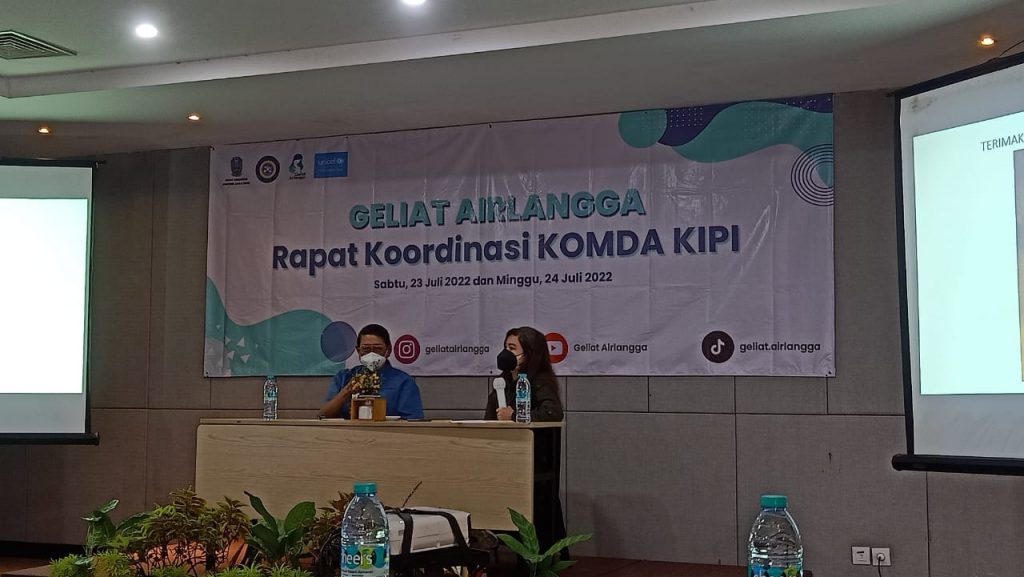UNAIR NEWS – On the initiative of Geliat Airlangga (Healthy Mothers and Infants Movement to Build Family-Based Bright Generation), a coordination meeting of KOMDA KIPI with UNICEF and the East Java Provincial Health Office was successfully held at Dafam Hotel Surabaya Auditorium on July 23-24. This activity is focused on welcoming the National Child Immunization Month (BIAN) in 2022.
According to the initial plan, the BIAN program will start in early August 2022. The implementation of BIAN is expected to close the gap in immunization coverage or the immunity gap that occurred during the Covid-19 pandemic.
A retired professor of Pediatrics, UNAIR Faculty of Medicine, Prof DR Ismoedijanto dr DTM&H SpAK, said that the National Child Immunization Month is deemed necessary because there were groups of children who have missed immunization.
“The COVID-19 pandemic has caused a gap in immunity because some groups missed their immunization due to the Covid-19 pandemic. The pandemic stopped immunizations for children because their parents were afraid, and the officers also did not dare to give immunizations that should be done, “said Prof. Ismoedijanto.
It means, continued Prof. Ismoedijanto, some are caused by distancing or isolation and so on. “Then what are we going to do with this? If there are many children left behind with their immunizations. So we are doing a mass catch-up program. It had to be done en masse. And the targets are those left behind with their immunizations,” said Prof. Ismoedijanto.
The Chairman of KOMDA KIPI East Java for the 2003-2015 period also reminded health workers about handling the effects of post-immunization. Prof. Ismoedijanto said that when implementing immunization program for children, health workers should be on alert for Post-Immunization Incidents (KIPI).
“In the discussions we conveyed several years ago, we always said that if a child has conditions or with contraindications, don’t do it at the Puskesmas, or the Posyandu. What is referred to is the immunization, not the post-immunization incidents (KIPI),” said Prof Ismoedijanto.
In the end, Prof. Ismoedijanto reminded us that children at risk of experiencing severe adverse effects must be observed and accurate preparations must be done. “It should be referred to a regency hospital under the supervision of an expert pediatrician,” he concluded. (*)
Author: Muhammad Suryadiningrat
Editor: Nuri Hermawan









